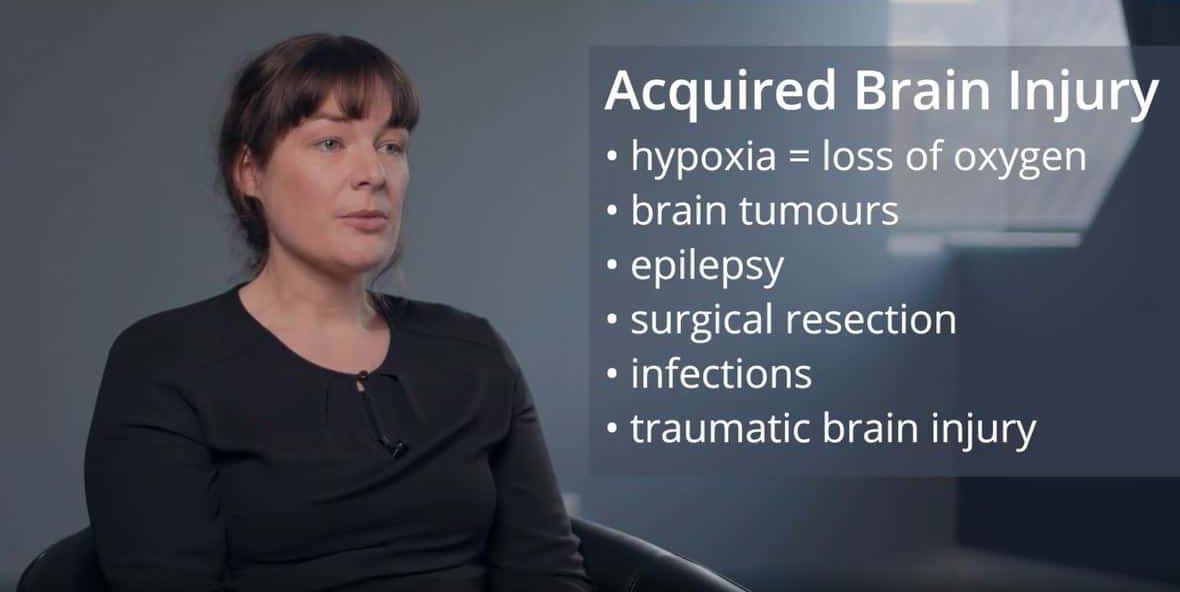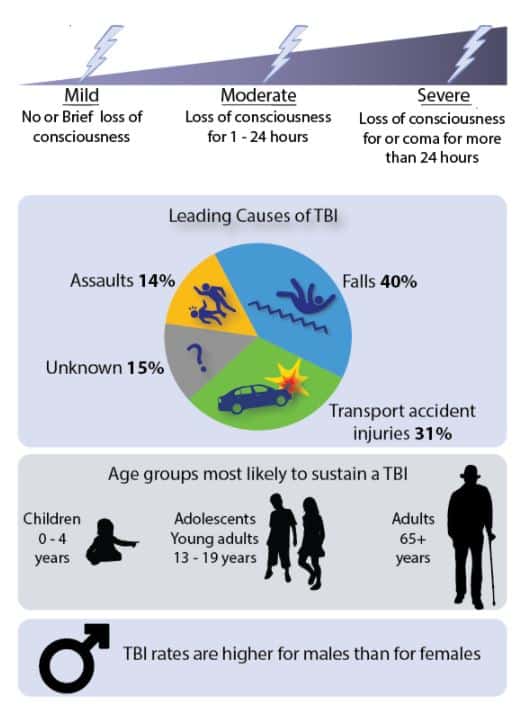Understanding Traumatic Brain Injury (TBI) MOOC: an In-Depth Review
Another course about the brain from the University of Tasmania for health professionals and others.
Back in early 2018, I read about a MOOC from the University of Tasmania (UTas), Understanding Dementia, in Class Central’s monthly email. I was amazed: a free online course with a 40% completion rate, from an independent provider, is big news indeed. I enrolled in the next session of the course and was so impressed, I immediately enrolled in their other offering, Preventing Dementia.
Then in 2019, the Wicking Dementia Research and Education Centre collaborated with UTas’s Menzies Institute for Medical Research to create Understanding Multiple Sclerosis. Like the other UTas courses, this one was top-quality and engaging.
So, I didn’t hesitate when I read about the Wicking Centre’s latest offering: Understanding Traumatic Brain Injury (TBI). My interest wasn’t purely academic. Although none of my close friends or family have suffered a severe brain injury, I do know several people who have had concussion. And yes, concussion is a traumatic brain injury.
According to the course, an estimated 69 million individuals sustain a TBI each year. This is probably an underestimate; do you know someone who has not bothered to seek medical advice for a possible concussion on the sporting field or a bump or fall at home? After taking this course, I would recommend that anyone with suspected concussion or other brain trauma seeks and follows medical advice.
While TBI can occur at any age, some age groups are higher risk than others. And you don’t need to be knocked unconscious to have a TBI.
Because males are generally more likely to take risks than females, they have higher rates of TBI, particularly in the adolescent/young adult age group.
Course Structure
With the main content arranged into four modules over a five-week period, the session-based course also has an introductory section and a completion module which takes care of housekeeping issues such as navigating the course and receiving your certificate. Like the other courses from UTas, it starts with an overview of brain structure and how the healthy brain works, with the help of an excellent interactive tool called Body Central.
The principal instructor, Dr Jenna Ziebell, is ably supported by a team of experts as well as a few videos recorded by people with a TBI or their family. Readings and links to sites of interest are also included.
One aspect that I missed in this course was the discussion forums. While previous UTas MOOCs encouraged participants to share their own experiences with dementia and MS, there were only three threads in this course: a general introduction thread (with over 2500 posts), technical issues, and a completion thread where learners could post final course feedback. While the introduction and final feedback threads were interesting, they did not create the same personal connection found in more regular discussions in the other courses.
Free Certificate
I was happy to receive a free certificate of participation from Utas. If I was a health professional using the course for continuing professional development (CPD), I would gladly pay the small fee for a full certificate which includes course hours and a summary of course content.








Mikayla Brink
So, I noticed that the course has been closed already, but I would really like to hear more on what you have to say. I am a 22 year old mother, who received my TBI when I was 16 years old. I had rolled my car, splitting my brain almost completely in half. I had lost half a year from that moment. Not remembering anything from 3 months before my wreck, clear till I had been in and out of hospitals for almost 4 months. I didn’t know who my mother was, who I was, where I was, who anyone else was. I was told that I had become extremely violent, and DID NOT WANT TO STAY I THE HOSPITAL!
Once I had began to slowly start understanding things enough for me to remember, I was sent to a Rehabilitation Center for Brain Injury and Spinal damage called Craig Hospital. It is somewhere up by Denver, CO. That’s about as much that I can remember to this day, and I was born and raised in Colorado.
The Nero Psychologist that I was seeing had explained that I had really damaged an area in the brain that acts as your conscious. Therefore, I couldn’t tell when actions where really bad ones, or smart ideas. He had told me that it takes nearly 2 years for any brain damage to heal, but would never fully heal.
Now, nearly 6 years later, I have major memory impairment problems. Strangely enough, I have problems with both my Short and Long Term Memories. I occasionally suffer from what I have been recently classified as Pseudo seizures, also called Psychogenic non-epileptic Seizures (PNES), are seizures that occur as a result of psychological causes. Mental stress.
Going into mentality, I have been diagnosed with bipolar, manic depressant, anxiety disorders, occasional mood swings, and PTSD. Also increasing my ADHD and ADD. I have tried being put on medications to help with my mentality. Only with all the different issues that I have acquired, trying to find the right med combo. The meds have only made things worse for me. So, I weened myself off of all the medications, and replaced it with the use of marijuana. It helps with my depression and anxiety, plus there have been studies on how the THC helps prevent seizure activity. Now, I may only seize every quarter of a year, instead of Quarterly every month.
Before my accident, I had graduated high-school a year and a half early. Was allowed to enroll into my first college after not even a year after my accident. In September, I will be graduating with my associates degree in business management, through taking online classes through American Intercontinental University! Being able to work at my own pace really helps. Especially where when I start to become confused, I begin to get aggressive.